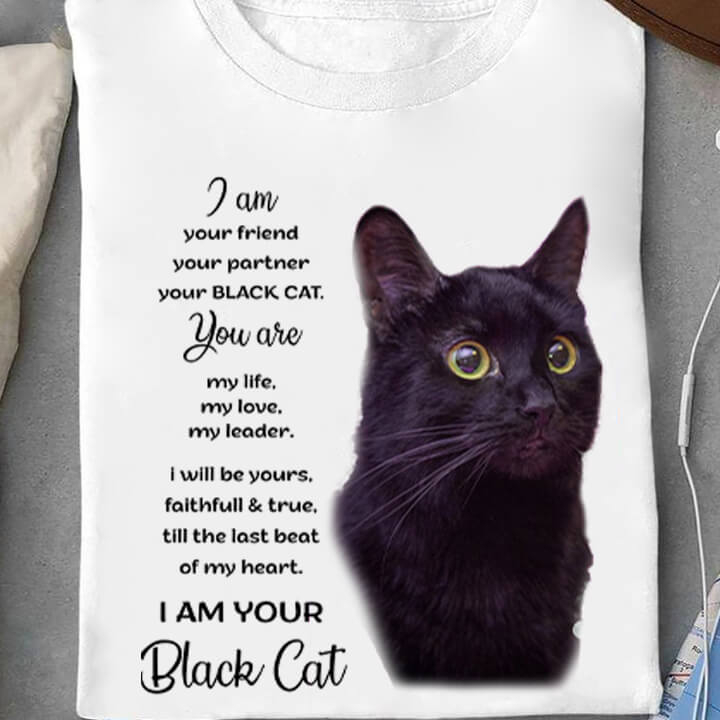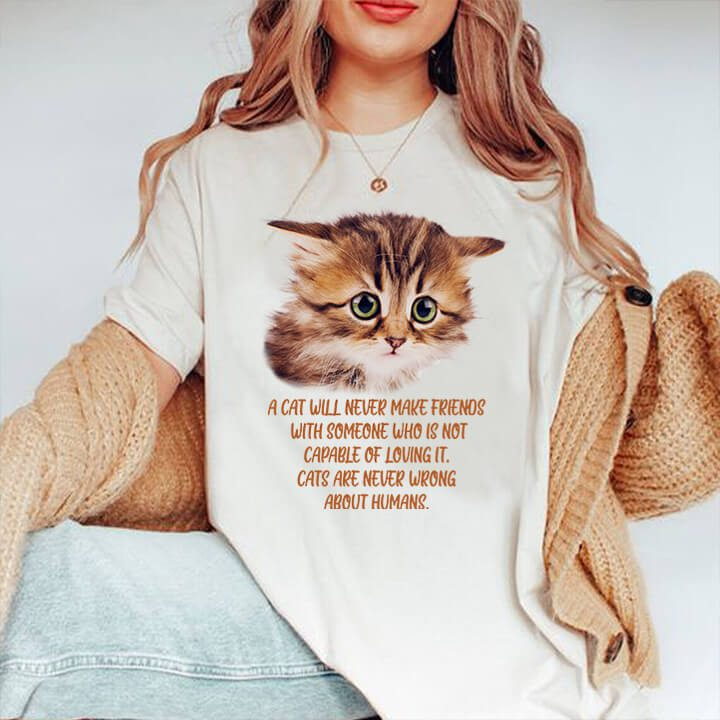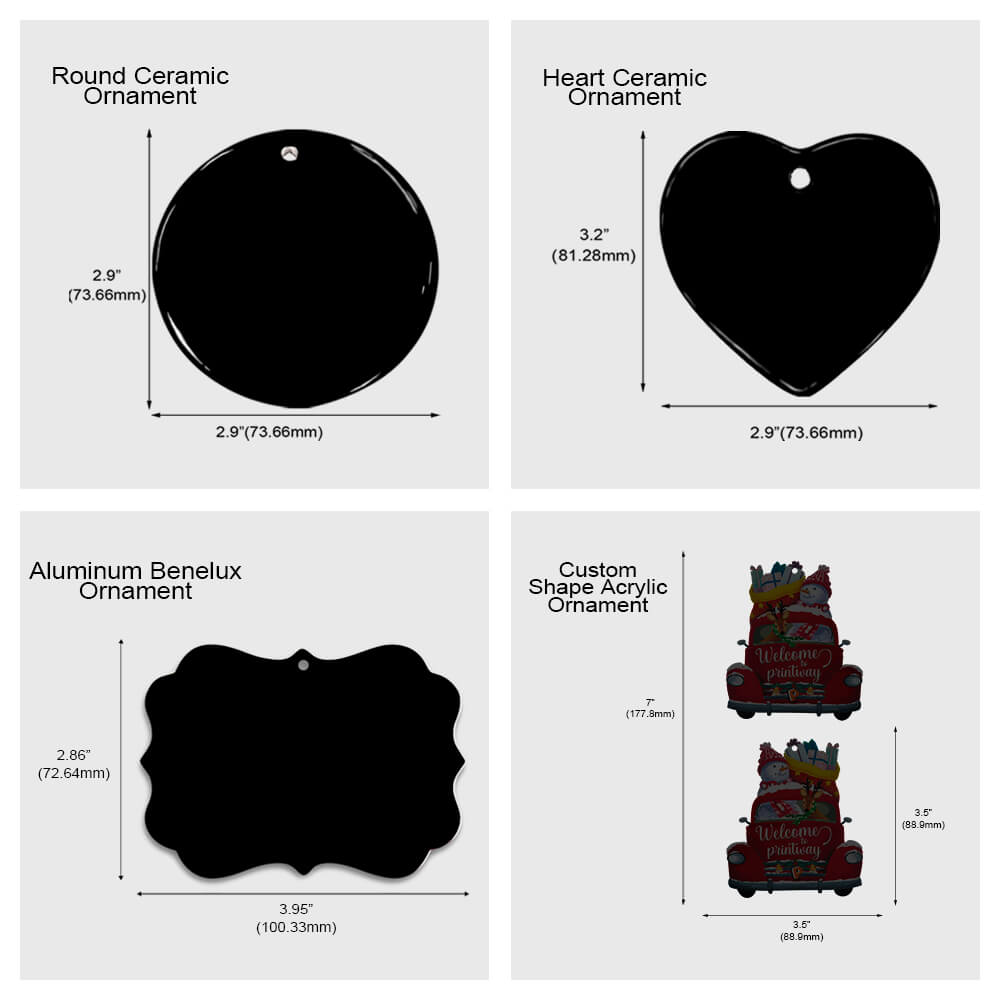A Cat Will Never Make Friend With Someone Who Is Not Capable Of Loving It. Cats Are Never Wrong About Humans

Table of Contents
Introduction:
Cats have long been known as independent creatures, often associated with aloofness or indifference towards humans. However, this perception is far from the truth. In reality, cats are highly perceptive animals that can form deep bonds with their human companions. A cat will never make friends with someone who is not capable of loving it because cats are never wrong about humans.
In this article, we will explore the fascinating world of feline-human relationships, delving into the behavior and emotions of cats to understand how they form connections with their human counterparts. We will also provide practical tips on building a strong bond with your cat based on mutual love and trust.
Understanding Cats:
To comprehend why cats are never wrong about humans, it is essential to gain insight into their behavior and emotions. Cats communicate in unique ways, often using body language, vocalizations, and scent marking to express themselves.
Cat Behavior and Communication:
Cats have a complex repertoire of behaviors that serve as a means of communication. Understanding these behaviors can help us decipher their intentions and emotions. Some common cat behaviors include:
- Purring: A cat’s purr is often associated with contentment or relaxation. However, it can also indicate pain or stress in certain situations.
- Meowing: Cats use meowing primarily to communicate with humans rather than other cats. Each meow may have a different meaning, such as hunger, attention-seeking, or distress.
- Kneading: Kneading is when a cat pushes its paws in and out against a soft surface. This behavior is reminiscent of the kneading motion kittens make while nursing and signifies comfort or contentment.
- Head Bunting: When a cat rubs its head against you or objects in your home, it is marking you with its scent glands as an act of affection and ownership.
Cat Emotions and Attachment:
Contrary to popular belief, cats experience a wide range of emotions similar to humans. They can feel happiness, fear, sadness, anger, and even jealousy. When it comes to forming attachments with humans or other animals in the household,
cats are highly discerning creatures who rely on their instincts to judge whether someone is capable of loving them genuinely.
Cats possess an innate ability to sense human emotions through subtle cues such as body language, tone of voice, and facial expressions. They can pick up on positive or negative energy and respond accordingly. If a person consistently displays affection, care, and respect towards a cat, the feline will reciprocate with trust and love.
Building a Relationship with Your Cat:
Now that we understand the importance of genuine love in forming a bond with cats let’s explore some practical ways to build a strong relationship with your feline companion.
Showing Love and Affection to Your Cat:
Cats thrive on love and affection from their human companions. Here are some ways you can express your love for your cat:
- Regularly petting your cat: Gently stroking your cat’s fur can create feelings of comfort and security.
- Playing together: Engaging in interactive play sessions using toys or laser pointers helps strengthen the bond between you and your cat while providing mental stimulation.
- Talking to your cat: Cats respond positively to soothing voices. Engage in gentle conversations with your feline friend to make them feel loved.
Creating a Safe Environment for Your Cat:
To foster trust and ensure that cats feel secure in their surroundings, it is crucial to provide them with a safe environment. Consider the following tips:
- Designate cozy spaces: Cats appreciate having their own private areas where they can retreat when they need solitude or rest.
- Provide vertical spaces: Cats enjoy climbing high places as it gives them an elevated view of their territory. Install shelves or provide tall scratching posts for this purpose.
- Ensure litter box hygiene: Clean and maintain your cat’s litter box regularly to promote good hygiene and prevent stress or discomfort.

By following these guidelines, you can create an environment that fosters love, trust, and companionship between you and your cat.
Q&A:
Q: Can a cat form a bond with someone who doesn’t show them love?
A: Cats are highly perceptive animals. While they may tolerate the presence of individuals who do not show them affection, they are unlikely to form a deep bond or consider such individuals as friends. Genuine love and care are essential for cats to develop strong relationships with humans.
Q: How long does it take for a cat to trust a new human companion?
A: The time it takes for a cat to trust a new human companion varies depending on the individual cat’s personality and past experiences. Some cats may warm up quickly within days or weeks, while others may require several months of consistent love and care before fully trusting their new human friend.
Common FAQ:
Q: Are all cats aloof and independent?
A: No, not all cats are aloof or independent. While some cats may exhibit more independent behavior than others, many felines crave social interaction and enjoy forming close bonds with their human companions.
Q: Can I build a strong bond with an older rescue cat?
A: Yes! Cats of all ages can form deep bonds with humans. Older rescue cats often appreciate the love and care provided by their new owners even more due to their previous experiences. Patience, understanding, and consistent affection can help build a strong bond with an older cat.
In conclusion, cats are never wrong about humans when it comes to forming friendships. Their ability to sense genuine love and affection makes them highly discerning creatures. By understanding their behavior, emotions, and providing them with love and a safe environment, you can build a strong bond with your feline companion that will last a lifetime.
Remember, your cat is not just a pet but also your friend and partner in life. Embrace the unique connection you share with your black cat by showing them the love they deserve.





 [/accordion-item]
[/accordion-item]





 Proudly manufactured in the USA. Experience the exceptional quality and craftsmanship that comes with American production.
Proudly manufactured in the USA. Experience the exceptional quality and craftsmanship that comes with American production.















